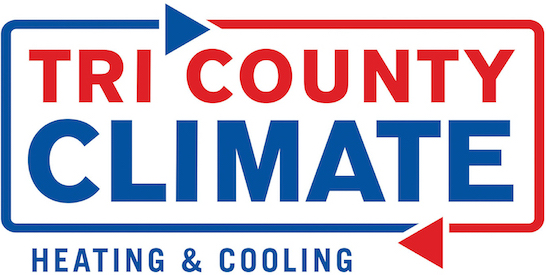Purchasing your first home is an exhilarating experience. You’re probably trying to keep track of a dozen things or more to ensure you’re making the right choice. We believe that gaining insight into your potential new HVAC system is crucial. The property’s HVAC system represents a significant investment and potential source of long-term costs, so being thorough should be a top priority for first-time homebuyers.
In this guide, we’ll outline seven tips for learning everything you can about a home’s heating and cooling system. And if you want a more in-depth opinion from the experts, feel free to call Tri County Climate Control LLC. Our staff can share details about your options with industry insights that are second to none.
1. Which Kind of HVAC System Does the Home Use?
Start by determining what kind of HVAC system the home includes. Furnaces generally last longer compared to air conditioners, and relatively new types of HVAC products like heat pumps can offer average life spans that are even longer. Getting the details on the make and specific model provides a much better sense of how much maintenance it will require.
2. How Long Ago Was the System Installed?
It also helps to learn how old the HVAC system is when you’re looking at a new home. For the most part, HVAC systems should survive for around 10-12 years. Having the knowledge of when it was installed helps you prepare for any needed servicing or when it might eventually stop working. Older systems may be more vulnerable to problems, so planning ahead of time for a replacement unit could be necessary sooner than you thought.
3. Does the System Have a Warranty?
Check if the HVAC system is still under warranty. If it is, you’ll appreciate how it can lower maintenance expenses. HVAC warranties should take care of parts and labor, but it’s important to note that details will vary. Make sure you go over any terms you don’t recognize to make sure you fully understand your coverage and any possible out-of-pocket costs.
4. Has the System Ever Been Professionally Serviced or Maintained?
Don’t forget to check the maintenance history of the HVAC system, if such information is accessible. This service history can demonstrate if there have been regular problems or how often a tune-up was scheduled. You should at least try to track down a history of key tasks like filter changes, which can indicate it received regularly scheduled tune-ups.
5. What Are the Energy Efficiency Ratings?
Finding a home that features an HVAC system with great energy efficiency can lead to smaller utility bills and a smaller environmental impact. Check out the seasonal energy efficiency ratio (SEER) ratings for air conditioning along with the annual fuel utilization efficiency (AFUE) for furnaces. The higher the SEER rating, the more efficient the cooling over the whole season, while strong AFUE ratings mean the fuel is efficiently converted into useable heat.
6. Did You See Any Problems During Your Inspection?
Even if you don’t have experience in HVAC systems, you should still inspect the HVAC system yourself. Watch closely for any concerning items that weren’t mentioned by the seller or real estate agent. This can mean bizarre noises, spots with uneven heating or cooling and attempts at concealing any serious damage.
7. Is an Experienced HVAC Technician Available to Help?
If you’re not quite sure about the overall state of the HVAC system, it’s never a bad idea to get an assessment and recommendation from trained HVAC technicians. They will be much more likely to catch things you might not, such as leaking coolant, damage to the wiring or damaged ductwork.
A Call with Tri County Climate Control LLC Simplifies Your Home-Buying Journey
Finding your first home is meant to be a joyful event, and Tri County Climate Control LLC wants to ensure it stays that way. Reach out with us at 541-546-1393. We can discuss how our HVAC services ease your mind, giving you what you need to dive into home-ownership with confidence.

